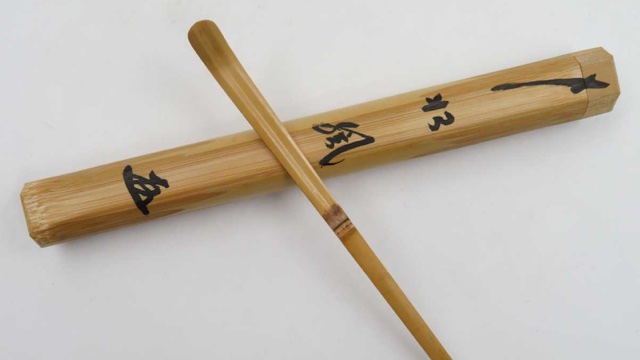
「松風」Matsukaze
The wind that blows through the pine trees, the "mei" that expresses the sound. The tea master expresses this as the sound of the tea kettle boiling.
「大福」Good luck
The word "Daifuku" means great luck. It's a perfect "mei" for celebratory occasions.
「瑞兆」Auspicious sign
“Auspicious sign” means an omen of something auspicious. It is a "mei" that expresses weather, goods, events, etc. where good things happen.
「春暁」Dawn of spring
The inscription "Spring Dawn" expresses the dawn of spring.
「春駒」Spring horse
"Harukoma" means a horse in a spring field. It specifically refers to foals born in spring. It is a "mei" that is also used as an analogy of "heart is courage".
「草萌」Grass sprouts sprout
"Kusamoe" is a word that expresses the sprouts of grass in spring.
「青柳」Green willow
“Aoyagi” is a “signature” that expresses a green willow with thick leaves.
「曲水の宴」A banquet of winding water
An abbreviation of the elegant game ``Kyokusui no Utage'' that was held on Joshi's Day in the Imperial Court. It means a banquet where you sit on the banks of a winding stream in a garden, compose a poem, and drink sake from a sake cup that flows down from upstream until it reaches you.
「花衣」Flower robe
A “mei” that expresses gorgeous clothing and a special dress worn for cherry blossom viewing.
「陽炎」Heat haze
"Kagero" is a phenomenon in which the scenery appears to flicker. It rises on a bright spring day.
「千代の春」spring of a thousand generations
A word that means early spring to celebrate, "Prosper for a long time, even for a thousand years."
「うらら」Bright and calm
A word that expresses a bright and calm state. I use it mainly on spring days.
「雲の峰」Cloud peak
A word that means a cloud that rises like a peak. It expresses how big white clouds rise steadily in the blue sky.
「薫風」Fragrant breeze
A gentle early summer breeze with the scent of green leaves. It expresses the scent of freshness and fresh grass.
「早乙女」Farming maiden
A maiden who planted rice. In the old days, the women involved in the rice-planting ritual dressed up as rice-planting gods and planted rice seedlings in a row.
「岩清水」Pure water
It expresses the pure water that springs up from between the rocks.
「雨後青山」It rains and the green shines
The word has the meaning that "Aoyama becomes even more green after it rains."
「浦風」Cove wind
It expresses the wind that blows in the ura and the wind that blows in the sea.
「青田」Green rice field
Aota is a green rice field where rice seedlings grow. It is a word that expresses a rice field that has not yet grown rice.
「蝉時雨」Cicada drizzle
Expressing the sound of many cicadas singing.
「祭囃子」Festival music
"Matsuri-bayashi" is the musical accompaniment that is performed on top of floats and floats at shrine festivals.
「積雲」Cumulus
A word that describes the cotton clouds that appear on a sunny day.
「日盛り」Sunrise
When the sun shines brightly It's a word that describes the heat of a summer afternoon in particular.
「雲海」Sea of clouds
Clouds lie in the distance, expressing a state that looks like the ocean.
「砧」Stand
“Kinuta” is a wooden or stone platform used to soften cloth woven from hemp by hitting it to give it a glossy look. Or it is a "mei" that expresses the sound of hitting it.
「尾花」Pampas grass spikes
Obana is a word that expresses the spikes of pampas grass, or Japanese pampas grass.
「秋の声」Voice of autumn
Represents the lonely voices of insects and the sounds of autumn.
「錦秋」Autumn leaves The inscription "Kinshu" means "Autumn when the autumn leaves become as beautiful as cotton". 「一葉」One leaf The inscription "Ichiyo" means that one feels the arrival of autumn when one large paulownia leaf falls. Paulownia leaves fall earlier than other trees from summer to autumn. A parable of predicting the future from a slight omen. 「千早」Chihaya The name means ``the Tatsuta River in Nara is dyed in bright red with autumn leaves that have fallen down.''
「雲井」Firmament The word "Kumoi" means "where there are clouds". Something that is far or high and very far away. It can also represent the Imperial Court or the Imperial Palace. 「千秋」Many years "Senshu" is a word that expresses a very long time. 「神楽」Shinto music Bugaku performed for the gods is called Kagura.
「晩鐘」Evening bell The word "bansho" describes the sound of a bell, especially in the evening. 「寒月」Cold moon "Kangetsu" means winter month. Or the moon in the cold, clear winter sky. It is a word that expresses the tremendous whiteness that is transparent. 「万歳」Long live “Manzai” is a “signature” that expresses a world that will last forever.